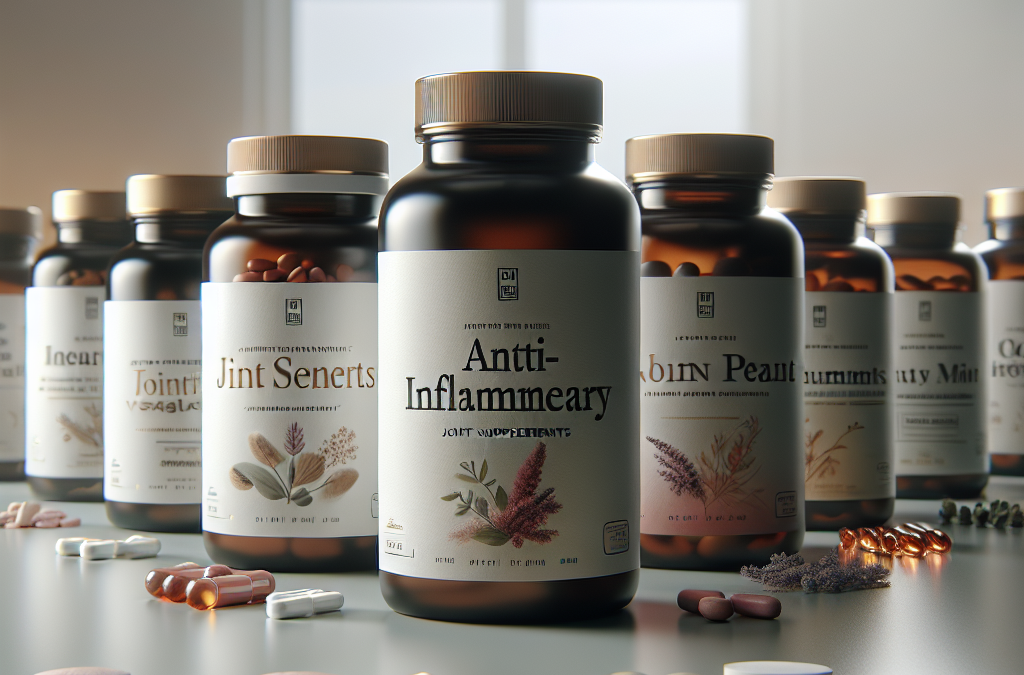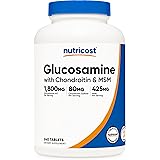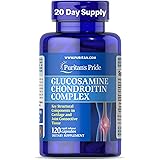Natural Ingredients
Turmeric
One of my favorite natural anti-inflammatory supplements is turmeric. It contains curcumin, which is the real superstar here. I’ve tried using turmeric in my cooking, but I found getting the right dosage in a supplement form works way better for me. The benefits of curcumin can help in reducing inflammation and pain, making it a go-to option for anyone dealing with joint issues.
Plus, it’s not just good for your joints but also supports overall health. It has antioxidant properties that can help fight free radicals in the body. I’ve noticed a significant improvement in my energy levels since I started incorporating it into my supplement regimen. Honestly, who wouldn’t want a little more pep in their step?
Another thing I love about turmeric is how easily it blends with other supplements. Sometimes, I combine it with black pepper extract, which can help improve absorption. This little duo is a powerhouse for tackling inflammation!
Glucosamine
Glucosamine is another crowd favorite that I’ve got to mention. This supplement helps support cartilage, which is super important because it cushions your joints. I’ve been using glucosamine supplements for a while now, and I’ve felt great improvements, especially in my post-workout recovery times.
What’s cool about glucosamine is that it comes in different forms, like glucosamine sulfate and glucosamine hydrochloride. I tried both, and honestly, I think the sulfate version works a bit better for me. I tend to feel less joint pain and stiffness with it.
If you ever decide to go for glucosamine, just give it some time. It’s not a magic wand; I noticed it took a few weeks to start feeling the full effects. But trust me, patience pays off!
Omega-3 Fatty Acids
You’ve probably heard of omega-3 fatty acids, and for good reason! These guys are the ultimate anti-inflammatory warriors. I personally take fish oil supplements because they’re packed with EPA and DHA, which play a crucial role in reducing joint pain and stiffness.
The Best Joint Support (Naturally) Starts with Organic Nutritional Support!
Get 40% Off Here ...
Interestingly, I’ve also found that omega-3s support heart health, so it’s like hitting two birds with one stone. Plus, they’re fantastic if you’re someone like me who doesn’t eat as much fish as we should. Supplements make it easier to get my daily dose!
Just a heads up; if you go for fish oil, make sure you choose a high-quality brand. Some cheaper versions can have this funky aftertaste. Nobody wants that, right? Get the good stuff!
Science and Research
Backed by Studies
There’s a ton of research out there showing the benefits of using these supplements. I always feel better taking something that has scientific backing. Studies on turmeric have shown reduced inflammation markers in participants, and that’s pretty reassuring.
Plus, the effectiveness of glucosamine is one of those things that has been tested repeatedly. It’s pretty proven that it can help with osteoarthritis. I often refer back to those studies when discussing supplements with friends who are skeptical.
Research on omega-3 fatty acids links them to better joint function and overall health. Whenever I talk to my doc about my supplements, seeing those studies really helps in keeping my confidence high in what I’m taking.
Consultation with Professionals
I can’t stress enough how important it is to talk to your healthcare provider before starting any new supplement. Everyone’s body is different, and what works for me might not be the best choice for you. I always consult my physician to ensure my supplement choices complement my health needs.
My doctor helped me understand how to combine certain supplements for maximum benefit. It’s like having a personal trainer for your health, guiding you toward choices that enhance your overall wellness.
She also noted potential interactions with medications, which I had no idea could be a thing! That’s another excellent reason to make that chat with your doctor a priority.
Personal Experience and Feedback
Trying out these supplements is also about personal experience. I’ve noticed my stiffness reducing and my energy going up! I love sharing these experiences with friends and family, and they often ask me about my go-to supplements for their own issues.
I’m a huge advocate of listening to your body, too. It’s fascinating to observe how my body responds to turmeric or glucosamine, for example. I think that feedback loop is crucial to figuring out what works best for you.
Good Joint Health Requires Good Nutrition Health. Click Here for More Info
Sharing this journey with others not only makes me feel supported but also allows me to learn from their experiences. It’s a community thing, and I love it!
Potential Side Effects
Common Reactions
Like anything we put in our bodies, supplements can have side effects. I remember the first time I started taking omega-3s—my stomach didn’t love it! I realized that taking it with meals made a huge difference. So, if you’re trying these for the first time, just be cautious and start slow.
Some people might experience allergic reactions, especially with fish oils. It’s essential to be aware of how your body reacts, especially if you have food allergies or sensitivities. I had a friend who had to switch to vegetarian omega-3s for this reason!
Keeping a log of how you feel after taking new supplements can be a game-changer. This way, you can pinpoint any side effects and discuss them with your doc if needed.
Interactions to Watch Out For
Another potential downside is interactions with other meds. When I first started taking turmeric, I checked in with my healthcare provider since it can thin the blood. I wanted to ensure it wouldn’t mess with my blood pressure medication.
Glucosamine might also interact with certain blood sugar medications, so keeping your healthcare provider in the loop is a smart choice. It’s not just about you; it’s about all those systems in your body working together harmoniously.
Being educated on potential interactions can help you make informed decisions and ensure that your health journey is a positive one.
Dosage and Recommendations
Finding the right dosage can be a bit tricky. I initially started with lower doses on all my supplements and gradually worked my way up to find my sweet spot. With turmeric, for example, I learned the recommended amounts and made adjustments based on how I felt.
Always follow the recommendations on the label, and don’t hesitate to ask your doctor for personalized guidance. It’s super important to get it right from the get-go instead of self-adjusting on a whim, which I’ve definitely done before!
I think consistency is key. I try to take my supplements at the same time every day. This way, I build a routine, and it becomes a habit, rather than something I forget about.
Conclusion: Making Informed Choices
In the end, finding the best anti-inflammatory joint supplements is all about understanding what’s out there, how your body reacts, and making informed choices. It’s been a process for me, but I feel empowered to manage my joint health effectively.
Take your time exploring various options, consult with your healthcare provider, and listen to your body. I really believe that with the right approach, you can find what works best for you, leading to better overall health and happy joints!
Frequently Asked Questions
1. What are the most popular anti-inflammatory joint supplements?
The most popular ones include turmeric, glucosamine, and omega-3 fatty acids. Each of these has unique benefits that support joint health.
2. How long does it take to notice the effects of these supplements?
It generally takes a few weeks to notice significant effects, especially with glucosamine and turmeric. Patience is key!
3. Are there any side effects associated with these supplements?
Yes, common side effects can include stomach upset, allergic reactions, and potential interactions with other medications.
4. Can I take these supplements together?
Many people take these supplements together, but it’s essential to talk to your healthcare provider to avoid any interactions.
5. Is it necessary to take supplements if I have a balanced diet?
While a balanced diet is crucial, some people find that supplements help them reach specific health goals or address deficiencies that diet alone can’t meet.














